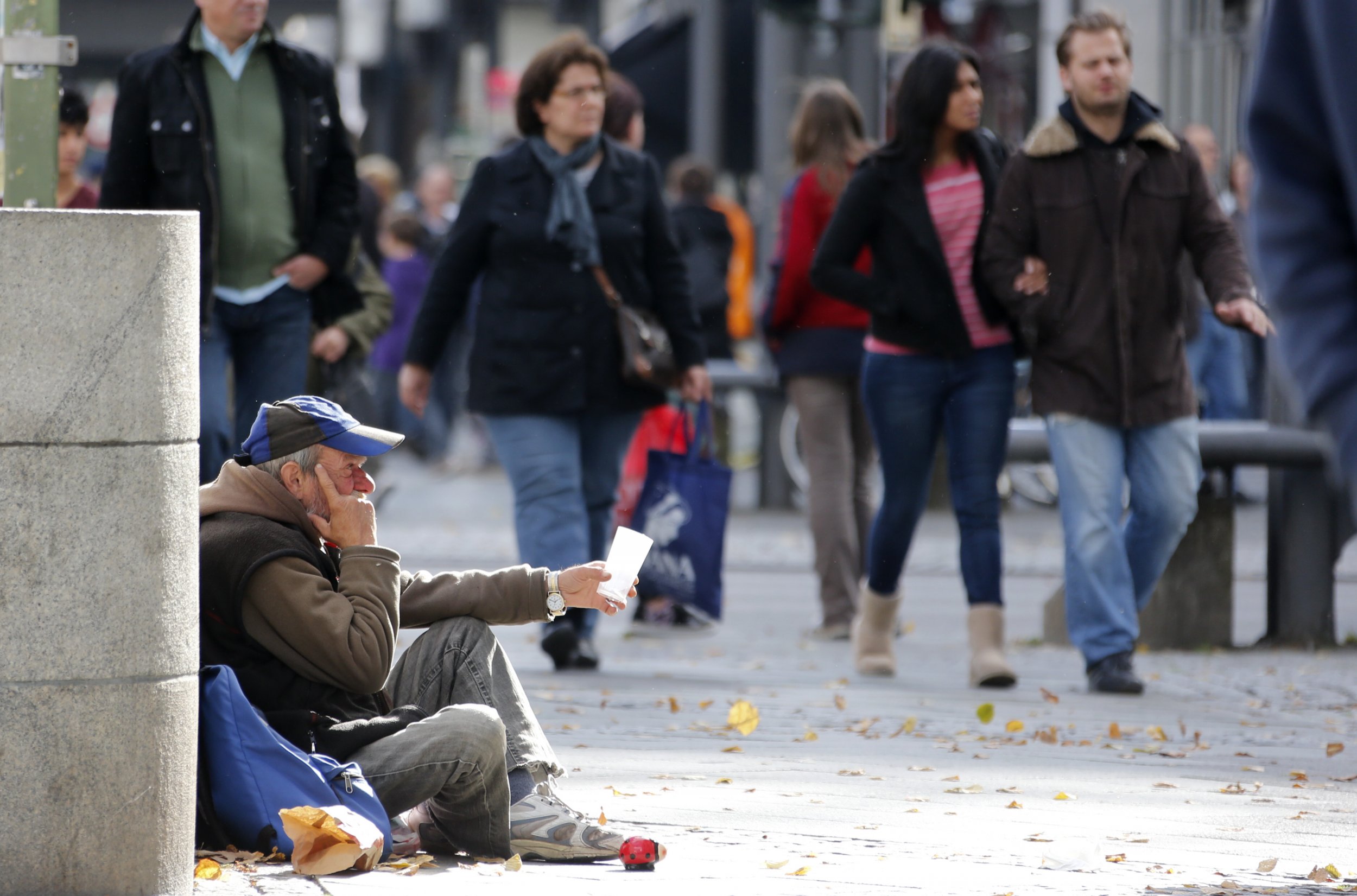
Poverty in Germany is at its highest since the reunification of the country in 1990, with 12.5 million residents now classified as 'poor', according to a study by a German welfare organisation.
The report, commissioned by the Joint Welfare Association, identifies Bremen, Berlin and Mecklenburg-Western Pomerania as the states most affected by poverty. Residents determined to be 'poor' were people whose household income fell 60% short of the national average.
It identifies "the unemployed, single mothers and people without education" as being currently at the greatest risk of poverty, while showing pensioners are also experiencing a faster rise in poverty than any other group.
Ulrich Schneider, executive director of Joint Welfare Association, said: "Poverty has never been as high and the regional disunity has never run as deep."
The report urges the federal government to take action to combat poverty and demands a significant tax policy overhaul and changes to the benefits system.
Dr Wolfgang Strengmann-Kuhn, a speaker for the Green parliamentary group in the German Bundestag, agrees. He believes cuts in social security funding are responsible for labour market incomes in the country becoming progressively more unequal, and points the finger at German chancellor Angela Merkel.
"While other countries have introduced tax credits for low income groups, this has not been on the agenda in Germany," he says. "The fight against poverty is not on the agenda of the present government, neither has it been on the agenda of the preceding governments under Merkel."
He says he believes that while Germany is profiting from the low value of the euro - which he attributes to the "crisis in southern Europe" - it is purely the upper-income groups who benefit.
"The poor lag behind because they have been neglected by the Merkel government," he says.
"What is needed in Germany is the introduction of minimum levels in the social security systems, and it is also necessary to make the social insurance system universal."
However, a spokesperson from the German Ministry of Labour and Social Affairs refutes the claims that Germany has seen a steep rise in poverty. She says poverty is a multidimensional problem and that the study does not take into account the degree of individual needs and merely uses one way of measuring relative income distribution.
"The 'at risk of poverty' rate shows the proportion of people with equivalent income below 60% of the median income. It is not to be equated with poverty in the sense of indigence," she says.
"Other highly important factors such as wealth, health, education, property or other social services are not considered. In addition, the indicator is not very robust due to random fluctuations of the median income. This means that small random fluctuations of the median income may have significant changes in poverty rates."
She also cited Germany's recent introduction of a nationwide minimum wage and a new policy package to reduce long-term unemployment as steps taken to improve the social inclusion of the long-term unemployed.
Uncommon Knowledge
Newsweek is committed to challenging conventional wisdom and finding connections in the search for common ground.
Newsweek is committed to challenging conventional wisdom and finding connections in the search for common ground.
About the writer
To read how Newsweek uses AI as a newsroom tool, Click here.








